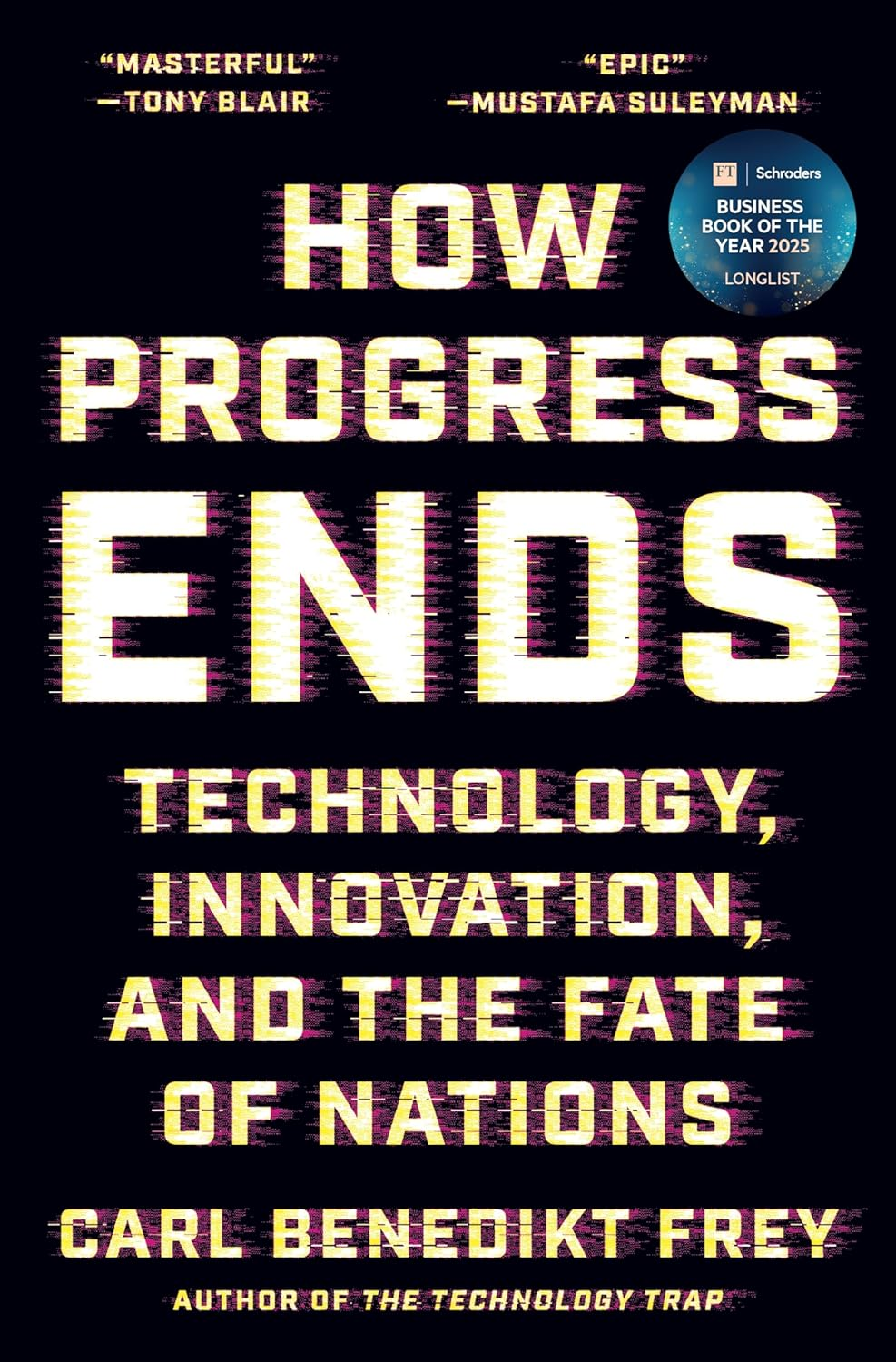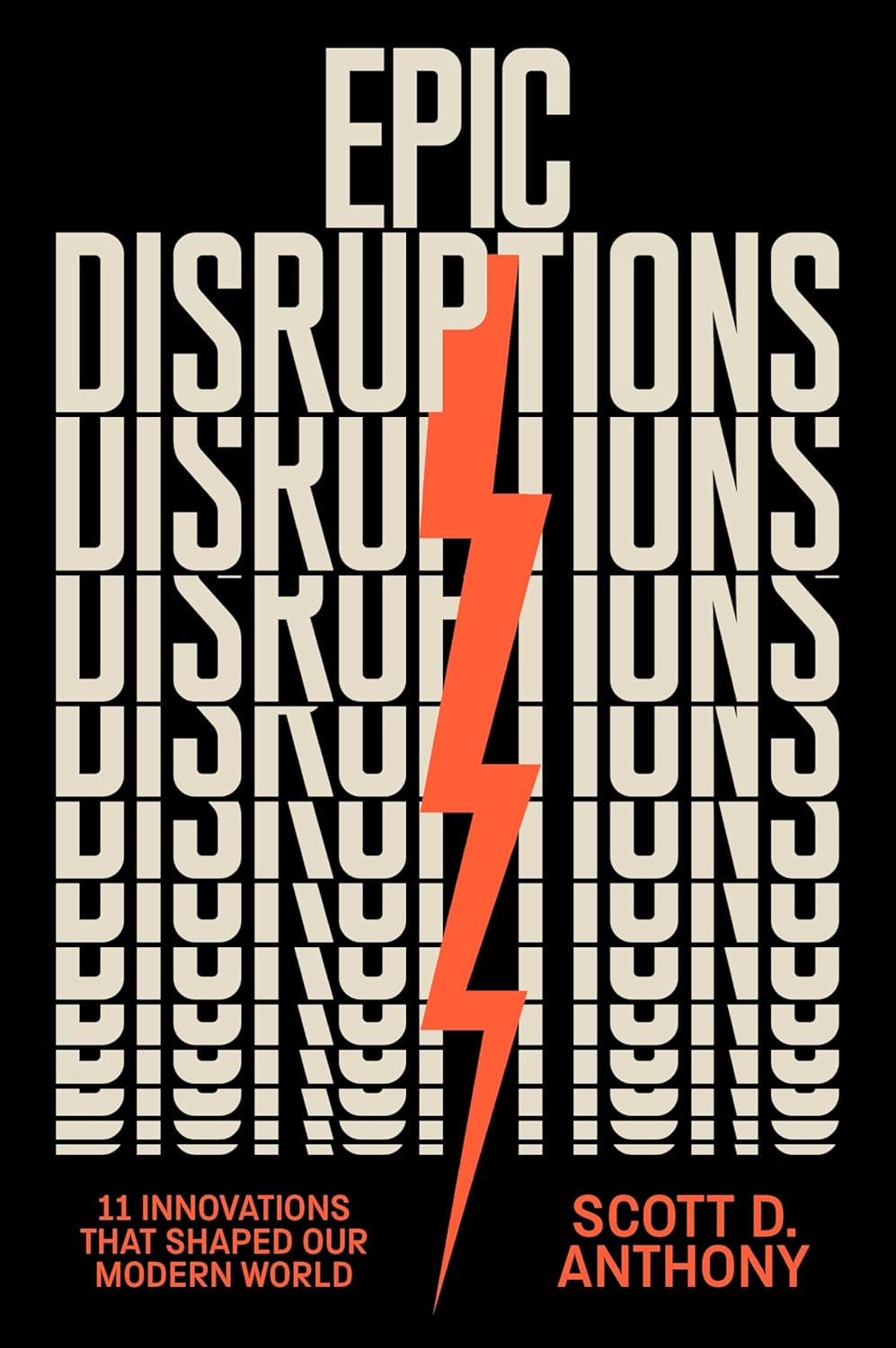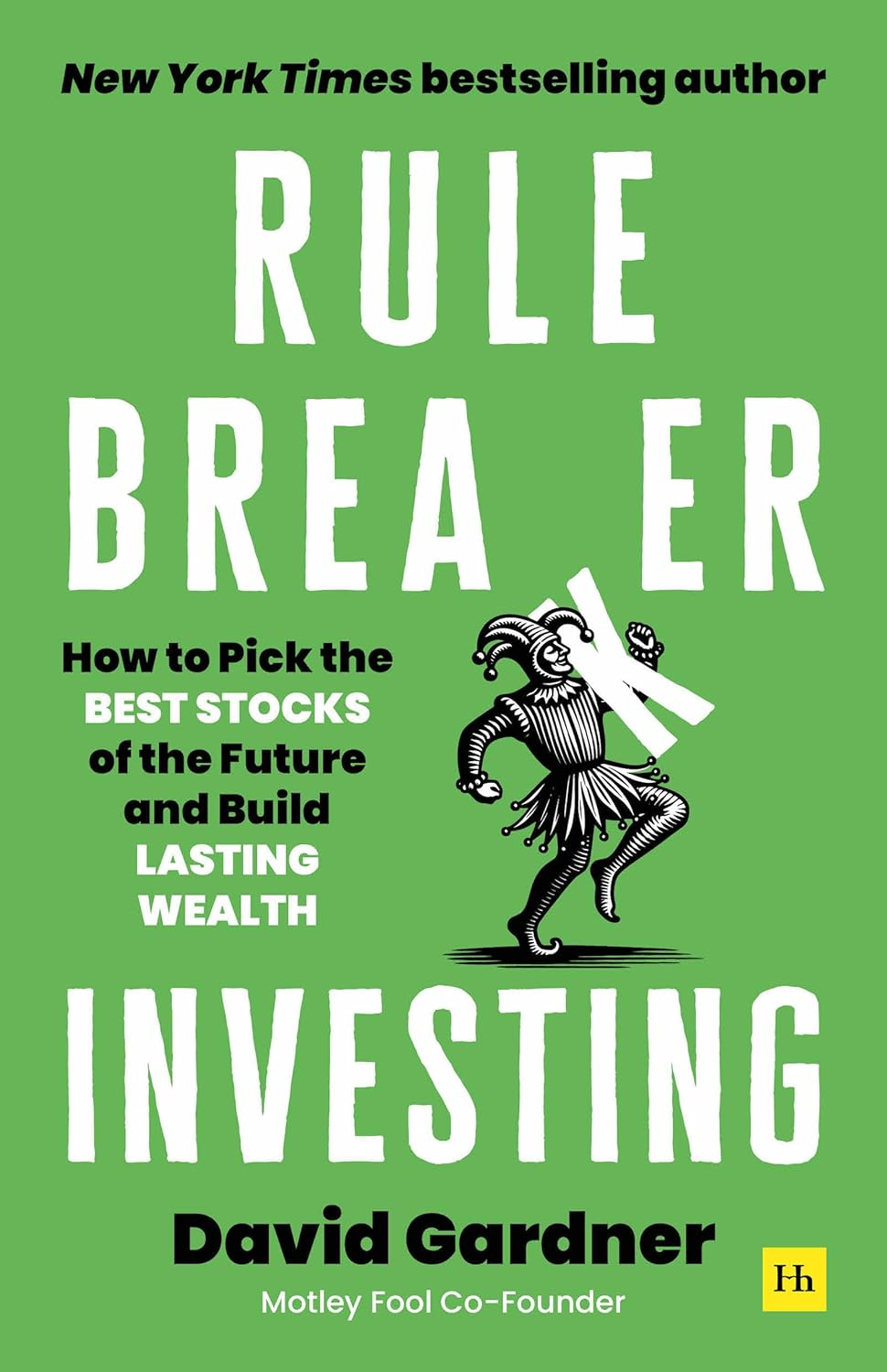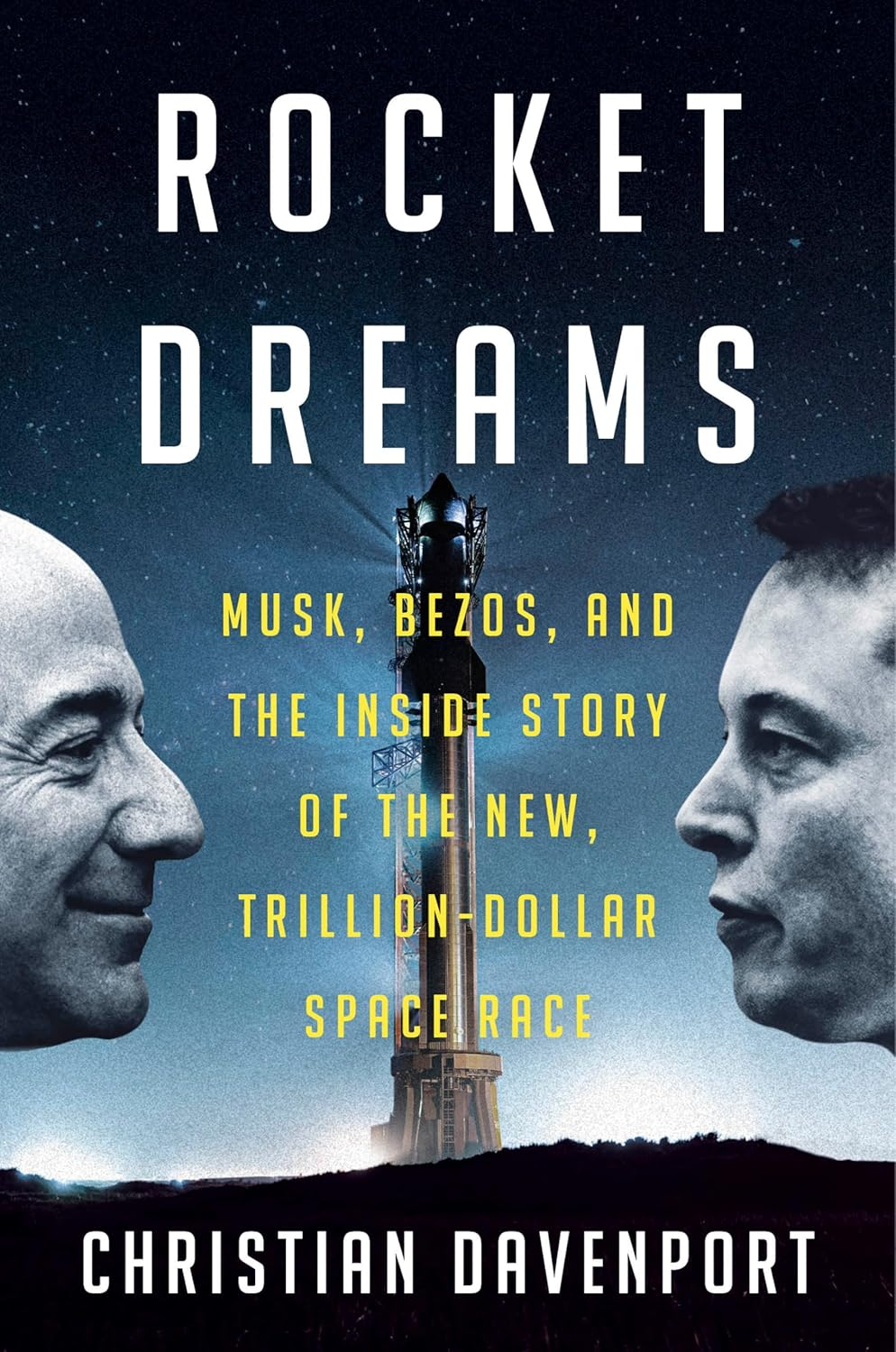 ● How Progress Ends: Technology, Innovation, and the Fate of Nations
● How Progress Ends: Technology, Innovation, and the Fate of Nations
Carl Benedikt Frey
Review via Publishers Weekly
Technological advancement stagnates when met with bureaucratic sclerosis and corporate monopoly, according to this probing study from Oxford economic historian Frey (The Technology Trap). From early civilizations to the modern era, Frey examines countervailing systems for nurturing technological progress. One is a centralized state that imposes change from the top—like ancient China, which developed cast iron, printing, and other technologies long before Europe did. The other is a decentralized system that encourages exploration—as in the U.S. from the Industrial Revolution onward—where inventors can find private and public investors to fund long-shot experiments. Moving to the present, Frey argues that Silicon Valley dominated the digital age through its startup and venture capital symbiosis, and China became an industrial behemoth with a hybrid of capitalist firms and a strong state. He’s pessimistic about the future prospects for innovation in both countries, however
 ● Epic Disruptions: 11 Innovations That Shaped Our Modern World
● Epic Disruptions: 11 Innovations That Shaped Our Modern World
Scott D. Anthony
Summary via publisher (Harvard U. Press)
From gunpowder to generative AI, the forces of disruption are repeatedly rewriting the rules of business, society, and human possibility. But what drives these revolutionary changes? In Epic Disruptions, innovation expert Scott Anthony masterfully weaves together the fascinating stories behind history’s most transformative disruptions–from ninth-century China to twenty-first-century Silicon Valley. Through eleven pivotal innovations, including the printing press, mass-produced automobiles, the McDonald’s revolutionary food system, and the iPhone, Anthony reveals the hidden patterns behind world-changing breakthroughs.
 ● Rule Breaker Investing: How to Pick the Best Stocks of the Future and Build Lasting Wealth
● Rule Breaker Investing: How to Pick the Best Stocks of the Future and Build Lasting Wealth
David Gardner
Interview with author via Stacking Benjamins
accept. Today we welcome Motley Fool co-founder David Gardner for a fast, fun masterclass on investing in individual stocks. Whether you are index-only or you like picking a few favorites, David shows how learning the language of great businesses can sharpen every investor’s game. David walks us through his six core habits, from letting winners run and adding to strength to thinking in three-year horizons and capping new positions at 5 percent. He shares the Starbucks on The View story, why “long-term investor” is redundant, and how purpose-driven companies often end up winning for everyone. We talk Chipotle, Netflix, Nvidia, and the difference between real investing and guessing. You will leave with a clearer lens for spotting excellence and the patience to let it compound.
 ● Rocket Dreams: Musk, Bezos, and the Inside Story of the New, Trillion-Dollar Space Race
● Rocket Dreams: Musk, Bezos, and the Inside Story of the New, Trillion-Dollar Space Race
Christian Davenport
Review via The New York Times
When the rocket company Blue Origin didn’t get a lunar lander contract with NASA in April 2021, its founder, Jeff Bezos, was fuming. Blue Origin had been working for years on a prototype lander, hoping to wrest funding — and some fame — from Elon Musk’s SpaceX, by then a trusted partner to the American space agency. Just four months into the Biden administration, Bezos began assembling attorneys to file a formal protest with the federal government. According to the journalist Christian Davenport’s latest dispatch from the high-tech space race, “Rocket Dreams,” Bezos also posed a question: “How would we go about this if NASA did not exist?”
The answer: Build big rockets that can get people to the moon (and Mars) anyway. Billionaires just really want to do that.
Please note that the links to books above are affiliate links with Amazon.com and James Picerno (a.k.a. The Capital Spectator) earns money if you buy one of the titles listed. Also note that you will not pay extra for a book even though it generates revenue for The Capital Spectator. By purchasing books through this site, you provide support for The Capital Spectator’s free content. Thank you!